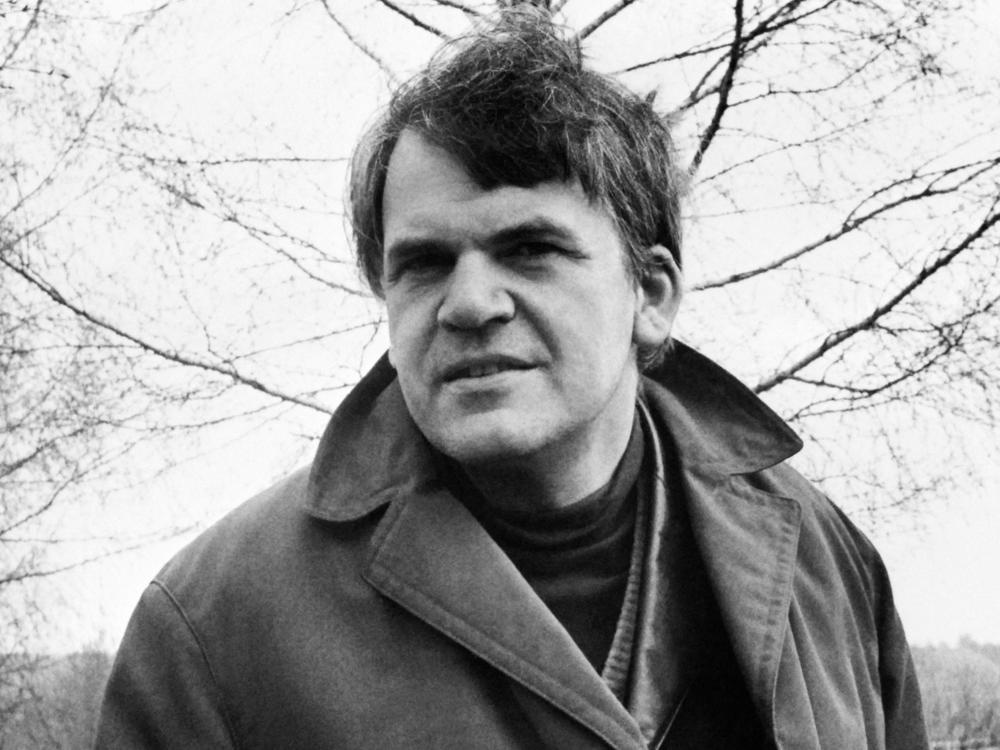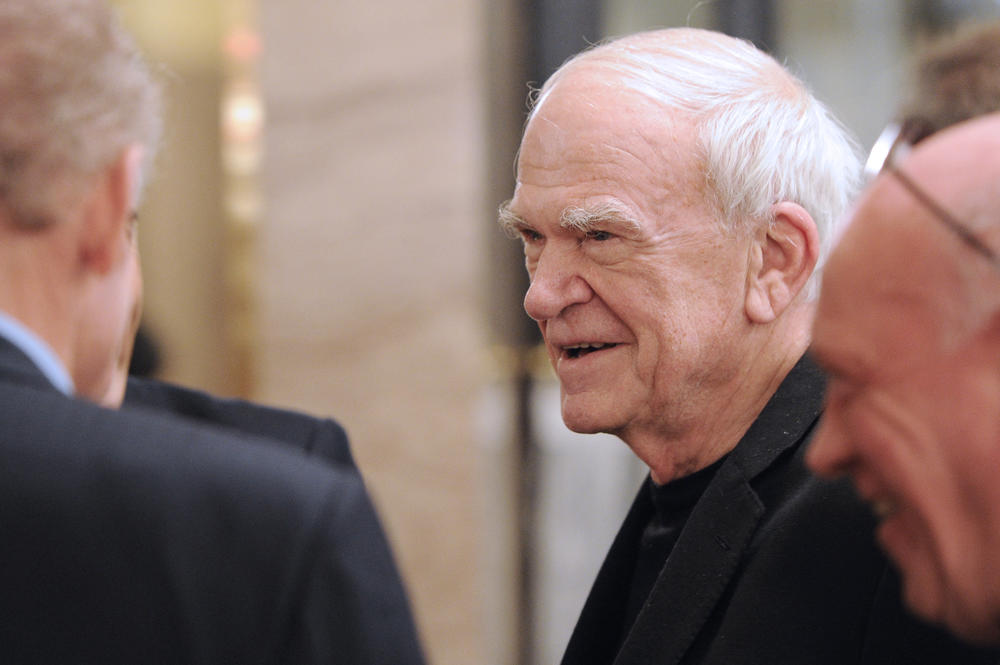Section Branding
Header Content
Milan Kundera, who wrote 'The Unbearable Lightness of Being,' dies at 94
Primary Content
The Czech writer Milan Kundera was interested in big topics — sex, surveillance, death, totalitarianism. But his books always approached them with a sense of humor, a certain lightness. Kundera has died in Paris at the age of 94, the Milan Kundera Library said Wednesday.
Kundera's most popular book, The Unbearable Lightness of Being, follows a tangle of lovers before and after the Soviet occupation of Czechoslovakia in 1968. It starts off ruminating on philosophy, but it has a conversational tone.
Kundera played with dichotomies — simple images against high-minded philosophy — presenting totalitarianism as both momentous and everyday. Sex being both deeply serious and kind of gross and funny.
"He's interested in what he calls the thinking novel," says Michelle Woods, who teaches literature at SUNY New Paltz. Woods wrote a book about the many translations of Kundera's work and she says Kundera thought readers should come to novels looking for more than just plot – they should leave with "more questions than answers."
Kundera was born in Brno, Czechoslovakia in 1929. His first book, The Joke, was a satirical take on totalitarian communism. The Czech government held up its publication, insisted that Kundera change a few things, but he refused. It was eventually published in 1967 to wide acclaim.
A year later, Czechoslovakia, which was in the middle of a cultural revolution, was invaded by the Soviet Union, and Kundera was blacklisted. His books were banned from stores and libraries. He was fired from his teaching job. He tried to stay in his home country but eventually left for France in 1975.
Kundera set Unbearable Lightness during this time in Czech history and the book was later made into a movie. Tomas — in the movie played by Daniel Day-Lewis — is a doctor who, amidst all this political turmoil and unrest, is busy juggling lovers.
The book coupled with his status as a writer-in-exile made Kundera popular across the globe — but Michelle Woods said he bristled at the fame.
"He really hated the idea that people were obsessed by the celebrity author," she says.
He didn't do many interviews and he didn't like being glorified. And even after being exiled from his home — he didn't like being seen as a dissident.
"It's maybe apocryphal, but apparently when he first went back to the Czech Republic he wore a disguise — a fake moustache and stuff, so he wouldn't be recognized," Woods says.
He was always interested in humor, especially in the face of something deathly serious. In a rare 1983 interview with the Paris Review, he said: "My lifetime ambition has been to unite the utmost seriousness of question with the utmost lightness of form."
Mixing the two together, Milan Kundera believed, reveals something honest about our lives.
Copyright 2023 NPR. To see more, visit https://www.npr.org.


